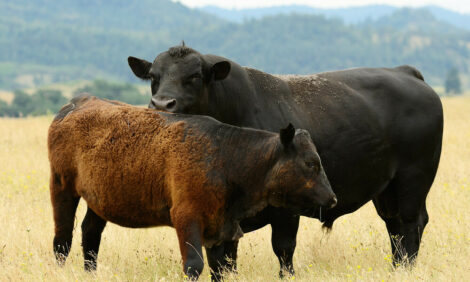



New Rules on OTFW Stocking in UK
UK - The Animal Health and Veterinary Laboratories Agency (AHVLA) has confirmed that the policy, which allows farms that have their Officially Tuberculosis Free status withdrawn (OTFW) following a new TB breakdown from restocking their herds until the short interval test is completed, has been changed.The National Farmers' Union (NFU) look at what this means for English farmers.
All herds that have an Officially TB Free Status Withdrawn breakdown will now have to wait until they have completed their first Short Interval Test (SIT) after 60 days of the reactor animal leaving the farm or being suitably isolated. In order to regain Officially TB free status it is necessary for herds with OTFW status to test clear at two consecutive short interval tests at no less than 60 day intervals.
In the past when farmers have been suffering from an OTFW breakdown it has been possible to continue to move cattle into isolated facilities on completion of a veterinary risk assessment, without having to wait for a SIT. The new AHVLA rules mean that this can no longer happen.
These changes occur following recommendations by the EU Food and Veterinary Office (FVO) following a recent audit of TB controls in England. It is felt that herds that have disease confirmed (OTFW) pose a greater risk of disease transmission and therefore further assessment of the disease levels in the herd must be gained.
As well as representing a risk from an animal welfare perspective the taxpayer is liable for the payment of compensation for animals removed as TB reactors, to increase the number of animals at risk from disease is an unnecessary risk for the taxpayer to be required to bear. Following the completion of the first SIT it is possible to have greater confidence that infection has been removed from the herd.
In order for England to get its Eradication Programme approved by the EU it is therefore necessary for AHVLA to make these changes; as to not have done so would have risked the EU not approving the Eradication Programme and the loss of EU grant funding.
The FVO recommended that no herd should be able to buy in cattle until they had their first clear SIT (no reactors or inconclusive reactors) however the NFU said this situation was unacceptable and in large parts of the country and would be unsustainable for the industry. It was therefore agreed that following a SIT where reactors or IRs are found, cattle could be moved onto the holding after a satisfactory veterinary risk assessment has been carried out and it can be proved that animals moving onto the holding will be kept isolated. This will ensure that there is no increase in the disease transmission risk.
The NFU has responded to this angrily, saying that farmers were left in the dark over new and complex changes to rules governing livestock movements under TB restrictions.
NFU President Peter Kendall said farmers will be bitterly disappointed not only because the changes will have serious impacts on some farm business already struggling to cope with a TB breakdown, but that such important changes have been communicated so badly.
“I am extremely concerned that such complicated rules are being changed over- night and with such poor communication,” he said. “It is the livestock farmers on the ground that will have to manage their businesses as a result of these changes and I firmly believe that the AHVLA has a duty to communicate effectively on such an important issue to ensure farmers understand the impact it will have.
“Having a TB breakdown on farm is already hugely damaging and stressful. While we reluctantly understand that these new rules are necessary in order to gain EU approval for the TB Eradication Plan for England, I have grave concerns that our farmers have been left in the dark over how they are to be implemented.”
TheCattleSite News Desk


